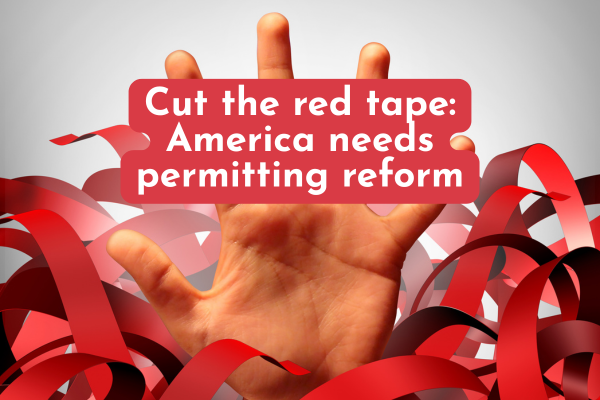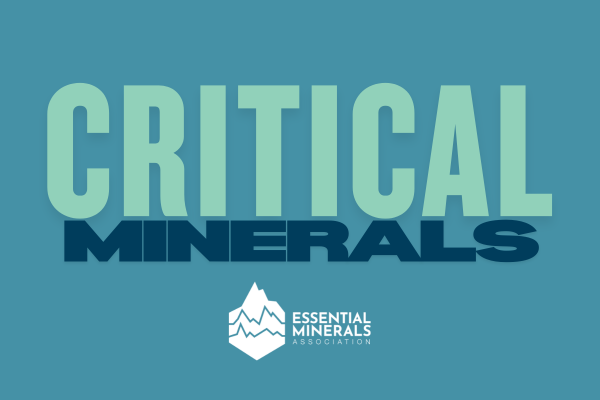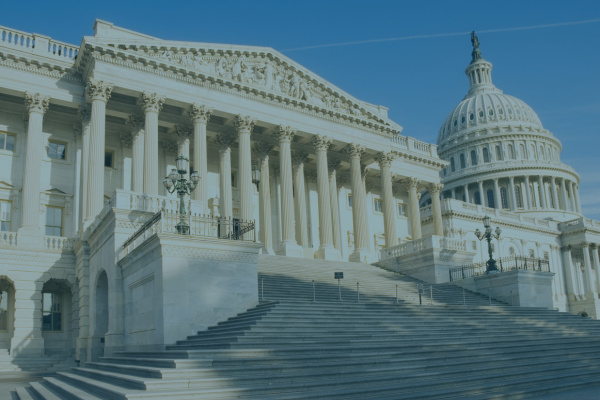October 9, 2025
October 9, 2025

From electric vehicles and semiconductors to infrastructure and defense technologies, modern life runs on minerals. Yet even as demand for minerals soars, mining companies in the United States face some of the longest and most burdensome permitting processes in the world. Delays, duplicative reviews, and regulatory red tape have made it increasingly difficult to launch and operate mines on American soil, putting the nation’s economic and national security at risk. To meet growing needs and compete globally, the U.S. minerals industry urgently needs federal permitting reform.
It takes seven to ten years on average to obtain the federal permits necessary to open a mine in the United States. In some cases, the timeline stretches well beyond a decade. Compare that to countries like Canada (2–3 years) or Australia (1–2 years) – nations with similarly high environmental standards but far more efficient permitting frameworks.
But when you factor in the entire mine site development, it takes even longer. A report by S&P Global, “Mine Development Times: the U.S. in Perspective,” says it takes an average of 29 years for mines to go from discovery to production. The second longest lead time in the world – Zambia is 34 years.
This delay isn’t due to environmental protections alone, but to a disjointed and duplicative process that often requires miners to engage with multiple federal agencies, sometimes with conflicting jurisdictions. A single mining project might need approval from the Bureau of Land Management, U.S. Forest Service, Environmental Protection Agency, Army Corps of Engineers, and more. And this is just at the federal level.
These overlapping reviews not only slow development but also increase legal uncertainty, project risk, and the likelihood of lawsuits. As a result, some companies abandon U.S. projects altogether or never apply in the first place, choosing instead to invest in countries with more predictable timelines.
Even if a company successfully navigates the federal permitting process, they frequently face frivolous litigation by special interest groups seeking to halt mining or other development projects. This result in many years – or even decades – spent in litigation in numerous court jurisdictions only for the courts to reject the permit approval and compel the agencies to start over again, often for reasons that have nothing to do with the project itself. Often, a company cannot afford the legal fees and other costs with continuing such protracted litigation before they even begin production, which causes them to give up on the project and seek opportunities overseas. This weaponization of the permitting and litigation processes to stall or block projects is not what Congress intended in passing the environmental laws, and Congress needs to reform this broken process.
Time is money, and in mining, time delays can inflate costs by hundreds of millions of dollars. When projects are delayed due to lengthy permitting processes, companies must continue to pay for environmental studies, consultants, engineering teams, legal counsel, and administrative overhead without any revenue coming in.
In fact, permitting delays can add as much as $1 billion to the cost of bringing a major mining project online. These delays deter investment in U.S.-based operations and give foreign producers—including geopolitical rivals like China—a competitive edge.
In short, U.S. permitting inefficiencies make it more expensive and less attractive to mine domestically, forcing manufacturers to rely on imported minerals, often produced under weaker environmental and labor standards. Federal permitting reform is vitally important to making it economically feasible to create a domestic mineral supply.
Contrary to common perception, mining companies operating in the United States must already meet some of the strictest environmental and labor standards in the world. They must comply with federal laws like the National Environmental Policy Act (NEPA), Clean Water Act, Endangered Species Act, Clean Air Act, and Resource Conservation and Recovery Act – not to mention a web of state-level rules.
NEPA, while important for protecting the environment, is often the source of extensive delays. Originally designed to ensure informed decision-making, NEPA reviews have morphed into multi-thousand-page Environmental Impact Statements that can take 4.5 years on average to complete. The process is ripe for legal challenges from opponents of mining projects, creating further uncertainty and delay.
Responsible mining companies are not asking for a free pass. They simply want clear timelines, coordinated agency reviews, and a fair, efficient permitting process. The goal is not to weaken environmental safeguards, but to reduce duplicative reviews and ensure that once a decision is made, it sticks.
The United States is heavily reliant on foreign sources for dozens of critical minerals, many of which are essential for clean energy, defense, manufacturing, and high-tech industries. According to the U.S. Geological Survey, the U.S. is 100 percent import-reliant for 12 key minerals and more than 50 percent import-reliant for another 31.
This dependence exposes the country to supply chain shocks, trade disruptions, and geopolitical manipulation. China, for example, dominates the global production and processing of rare earth elements and other key inputs. In 2024, Beijing tightened export controls on gallium and germanium – two minerals vital to electronics and semiconductors – underscoring the national security risks of import dependence.
Building resilient supply chains starts with expanding domestic mineral production, but without permitting reform, that simply won’t happen. Even projects that are shovel-ready remain stuck in regulatory limbo.
Federal permitting reform doesn't mean cutting corners. It means modernizing outdated processes and creating a system that is both predictable and protective. Key reforms the mining industry supports include:
Several bipartisan bills have proposed reforms along these lines, including the Building America’s Energy and Mineral Security Act, Revitalizing the Permitting Process for Mining in America Act, and elements within broader energy permitting proposals.
In 2023, the Biden Administration’s efforts to accelerate clean energy projects also acknowledged the need for faster mining permitting, but action remains slow and fragmented. As the demand for minerals surges, Congress must treat permitting reform for mining with the urgency that the situation requires.
Minerals are foundational to nearly every priority of the modern economy – clean energy, digital infrastructure, advanced manufacturing, and defense readiness. But none of those goals can be met without a reliable supply of domestically produced minerals.
Permitting reform is not about helping mining companies, it's about helping advance our national interests. It's about making sure America can produce the raw materials it needs, under strong environmental oversight, while reducing reliance on foreign adversaries. It's about creating high-paying jobs, strengthening economies, and securing our future.
Without federal permitting reform, the U.S. minerals industry will remain hobbled by bureaucracy, and the nation will continue to outsource both the benefits and burdens of mineral production abroad.
Minerals Make It Happen – but only if we have the policies in place to let them.

October 9, 2025

August 25, 2025

May 22, 2025